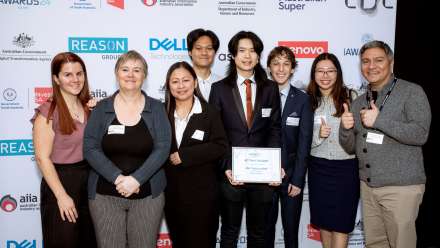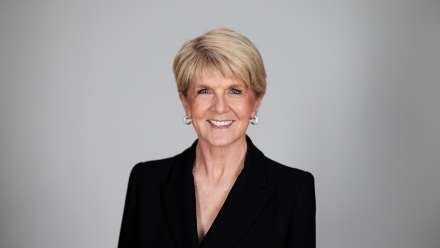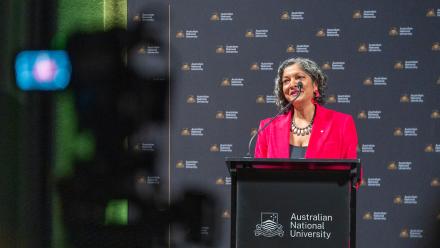Canberra Clinical Genomics is unravelling genetic mysteries
Finding answers to complex genetic health conditions has huge implications for those affected.
It's something that strongly motivates Dr Edda Koina, who leads Canberra Clinical Genomics (CCG), and she says that finding answers for families is the most rewarding part of her role.
"I love it when we resolve a case and find a solution for someone," Dr Koina says.
"Whether it enables them to manage a rare condition, helps them find a community or gives other family members peace of mind about having children, it's a powerful thing."
CCG is a partnership between Canberra Health Services (CHS) and The Australian National University (ANU), that was set up in 2017 to offer whole exome sequencing (WES) for rare diseases as a routine diagnostic service for clinicians.
The publicly funded service has expanded into whole genome diagnostics across several disease areas, including cardiology, renal, rheumatology, haematology, paediatrics, congenital disorders and familial cancer.
Started by immunologist Dr Matthew Cook, CCG is now led by Director and genetic pathologist Dr Marcus Hinchcliffe. CCG includes a multidisciplinary team, building on the capacity of discovery genomics research at John Curtin School of Medical Research (JCSMR).
"CCG was the first joint venture between what is now CHS and the ANU, and the ongoing partnership supports research capability and better health outcomes," Dr Koina says.
"We have had four National Association of Testing Authorities (NATA) accreditation audits since we started and have always passed with flying colours.
"The partnership works well as both sides generously give what they can. The ANU has the infrastructure and knowledge. The hospital provides the funding and clinicians. It's a great model and good for TCH to have close links with ANU research."
Dr Koina says that CCG has excellent relationships with the hospital, their clinicians, the genetics counselling service, JCSMR, and is well supported by the Division of Medicine at CHS.
Leveraged through these relationships, Dr Koina says that in the coming months CCG will access state-of-the-art instruments and technologies that will enable accurate long-read sequencing, a technique used to obtain more detailed and comprehensive genomic information, as part of the publicly funded system.
In terms of the future for CCG, Dr Koina says it will only continue to expand.
"Our aims are to do the long-read work and eventually become a referral centre for a broad and comprehensive range of inherited neurological disorders, filling an important unmet clinical need for the ACT and Australia more widely" she says.
Dr Koina describes genomics as a challenging field, though rewarding and ever changing.
"It can be frustrating when we don't find an answer for a patient, but the beauty of this work is that our knowledge improves all the time," Dr Koina says.
"We take reanalysis requests to look at a case again, a few years down the line, and we can potentially discover something new.
"When you have a patient, and they get a result they can act on, that's what it's all about.
"I think we are all in this field because of that."


